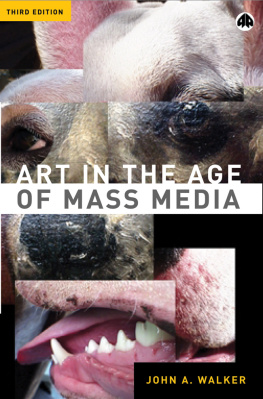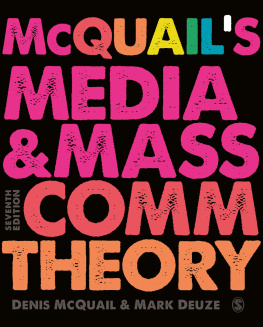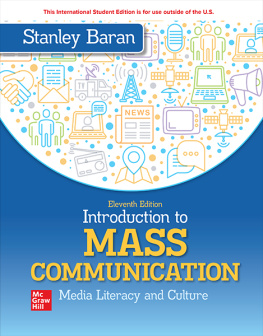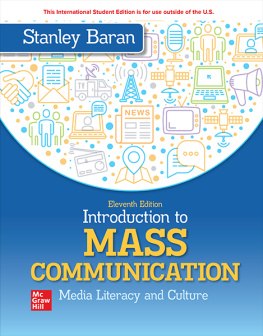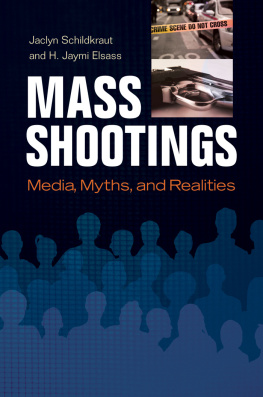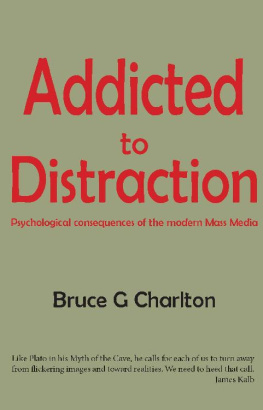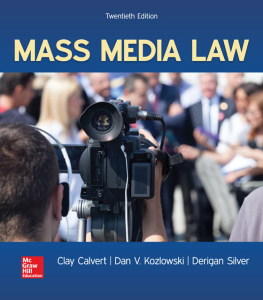
Mass Media
Those of us with an interest in social problems can scarcely afford to ignore the importance of the media in the contemporary world. In most people's timetables the number of hours spent reading papers, watching TV or listening to the radio comes third, after sleep and work. The media are a major source of information, of entertainment and, because of advertising, a major factor in economic development. Outstanding books have been written on film, television and newspapers, but the interaction between these media, their relation to each other and to society as a whole are generally ignored. This book attempts to take into account the whole 'system' of information and entertainment and to define, on the basis of the present state of theory and with reference to a number of case studies, the conditions and prerequisites for a wide-ranging enquiry into the media and their different uses in societies. The author examines how audiences develop, evaluates tastes and analyses some of the major technical changes which have occurred in the last century. He considers the role of the media in entertainment and information. Finally he explores how media empires evolve.
Lively and accessible, this book will appeal to students of sociology, cultural studies and communication studies.
Pierre Sorlin is Professor of Sociology of Audio-Visual Communication at the University of Paris III.
KEY IDEAS
Series Editor: Peter Hamilton
The Open University
Key Ideas
Series Editor: PETER HAMILTON
The Open University, Milton Keynes
Designed to complement the successful Key Sociologists, this series covers the main concepts, issues, debates, and controversies in sociology and the social sciences. The series aims to provide authoritative essays on central topics of social science, such as community, power, work, sexuality, inequality, benefits and ideology, class, family, etc. Books adopt a strong individual 'line' constituting original essays rather than literary surveys, and form lively and original treatments of their subject matter. The books will be useful to students and teachers of sociology, political science, economics, psychology, philosophy, and geography.
THE SYMBOLIC CONSTRUCTION OF COMMUNITY
ANTHONY P. COHEN, Department of Social Anthropology, University of Manchester
SOCIETY
DAVID FRISBY and DEREK SAYER, Department of Sociology, University of Manchester
SEXUALITY
JEFFREY WEEKS, Social Work Studies Department, University of Southampton
WORKING
GRAEME SALAMAN, Faculty of Social Sciences, The Open University, Milton Keynes
BELIEFS AND IDEOLOGY
KENNETH THOMPSON, Faculty of Social Sciences, The Open University, Milton Keynes
EQUALITY
BRYAN TURNER, School of Social Sciences, The Flinders University of South Australia
HEGEMONY
ROBERT BOCOCK, Faculty of Social Sciences, The Open University, Milton Keynes
RACISM
ROBERT MILES, Department of Sociology, University of Glasgow
POSTMODERNITY
BARRY SMART, Associate Professor of Sociology, University of Auckland, New Zealand
CLASS
STEPHEN EDGELL, School of Social Sciences, University of Salford
First published 1994
by Routledge
11 New Fetter Lane London EC4P 4EE
Simultaneously published in the USA and Canada
by Routledge
29 West 35th Street, New York NY 10001
Reprinted 1997
Transferred to Digital Printing 2004
1994 Pierre Sorlin
Typeset in Times by Intype, London
All rights reserved. No part of this book may be reprinted or reproduced or utilized in any form or by any electronic, mechanical, or other means, now known or hereafter invented, including photocopying and recording, or in any information storage or retrieval system, without permission in writing from the publishers.
British Library Cataloguing in Publication Data
A catalogue record for this book is available from the British Library.
Library of Congress Cataloguing in Publication Data has been applied for
ISBN 0-415-11023-8 ISBN 0-415-07209-3 (pbk)
Contents
Chapter 1
Audiences |
Chapter 2
Contents |
Chapter 3
Media makers |
Many people have contributed, directly or indirectly, to the elaboration of this book. I owe a debt to Peter Hamilton who fathered the first idea of the work and then stimulated my research. While I was writing, I had long, often controversial talks with David Buxton, Danny Dayan and Paddy Scannell, whose influence can be detected in many pages. I am most grateful to the graduate students of the Sorbonne who forced me to elucidate my views and make them more explicit.
Imagine a newcomer has entered your room. It is not a human being, only a book. But just as people need to be introduced, so do books. If we want to make use of them, we need to know their aims and purposes.
The title of this volume speaks for itself. We have all heard of those means of communication, namely the press, television, radio, cinema and posters, which convey information and purvey entertainment throughout the world. I am not attempting to describe them here, for my readers know very well what they are. I am more interested in understanding how we experience the media. On the one hand, they are 'real' objects, as palpable as pieces of furniture; on the other hand, they draw us into a world taken for granted, although what is said or shown does not happen in front of us. My concern is with this duality and the workings of our daily routines: what part do the media play in our lives? How do we accept, or reject what they tell us? How far do they try to sway our thinking? This is a critical essay aimed at questioning its readers' practices.
Masses and media
To begin with, are we bound to consider the two nouns, 'mass' and 'media', as given? Even if the compound expression is familiar to us, its components have been insufficiently considered. What constitutes 'mass'? What do we mean by 'media'? It is true that short words are very convenient and it is reasonable to prefer the term 'mass media' to the phrase 'influential and widely diffused means of communication'. However, this does not account for the choice of the two terms which, taken together, give 'mass media' its verbal form and meaning.
A mass is a lump of matter; the word itself conveys a notion of weight and quantity. Military observers signal when a general has 'massed' his troops for an attack indicating a serious threat for the other side. And, for many of us, the most salient feature of modern industry is mass production, which means cheap and short-lived items desired by the multitudes. I do not need to point out that the word 'mass' has come to have strong negative connotations, linked as it often is to other terms to which it adds a depreciative nuance. 'Mass art' (e.g. industrialized furniture, comic-strips, pop music) attempts to please the majority and ignores the refinement of 'pure' art. Mass culture is sold at bargain prices. Mass-circulation magazines are filled with gossip and the nadir is probably reached when objects are aimed at the housewife.
In its more practical sense, related to weight, the word mass has been in the language for many centuries but used in its current sense it is rather recent. Until late in the nineteenth century, the prevalent word for evoking fear and suspicion was 'multitude' and, during the French Revolution, 'mob' was a very evocative word to characterize an unsteady, easy to mobilize crowd. But why did the word 'mass' prevail over 'mob'? Some historians would say that the ruling class, having witnessed migrations from rural areas to the cities and industrialization, believed that it would soon itself be merged into 'the mass' of uneducated, unskilled people. However, I think that such 'realistic' explanations miss the point. There was after all no precise reason for politicians and moralists to denounce the vulgarity and tastelessness of the 'masses' but, once they had begun to do so, it became increasingly 'obvious' that there was something untoward about the masses.




